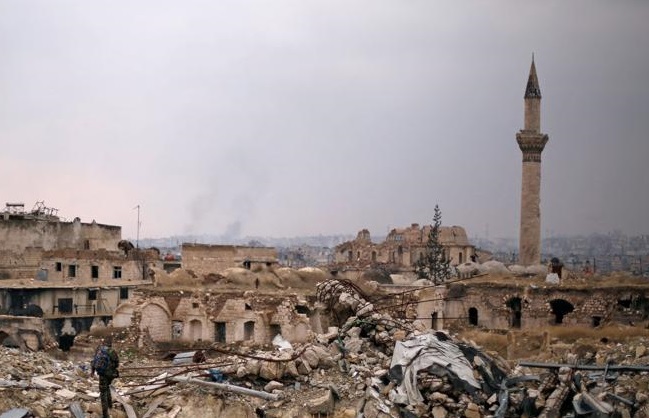On Tuesday, 13 December, U.S. officials announced they would block the $350 million sale of air munitions to Saudi Arabia, citing the high civilian death toll from the kingdom’s intervention in Yemen. Media outlets were quick to cover the announcement, which followed months of increased tension between the two allies over the war. However, the significance of the decision remains up for discussion with some headlines describing the development as merely maintaining military aid with “small changes.”
The U.S. has been supporting Saudi Arabia and its coalition’s fight against the Houthis in Yemen since the conflict broke out in March 2015. In addition to billions of dollars in weapons sales which fuel the kingdom’s ability to carry out its airstrikes, the U.S. works closely with the Saudi military to provide intelligence and technical training. Instead of curbing the Saudi coalition’s violations, U.S. cooperation is deepening its complicity in a campaign which has launched more than 2,800 airstrikes on civilian targets and claimed thousands of lives.
Reports of U.S. weapon usage in unlawful coalition strikes on funerals, marketplaces, and hospitals this year placed the White House under increasing pressure from members of Congress and human rights groups to cut off its support for the coalition. However, despite voicing shared concerns, U.S. leaders have desisted from taking action. In September, the Senate failed to pass a bipartisan resolution (SJ Res 39) that would have condemned and suspended a $1.15 billion tank sale to the Kingdom of Saudi Arabia. Earlier, in June, the House narrowly defeated a measure that would have banned the transfer of cluster bombs.
In light of these failures, the recent suspension of the munitions deal marks modest progress for the U.S.’s role the war in Yemen, because American policy makers often capitulate to the influence of the defense industry. However, the U.S. government continues to approve the majority of weapons sales to the Kingdom. For example, the same day the United States announced it was halting the weapons shipment, the U.S. Air Force delivered four new fighter jets to the Saudis — aircraft designed to launch the same precision-guided munitions that the Obama administration had just withheld. One week later, the Department of Defense approved more than 7 billion dollars in weapon sales to Saudi Arabia and its coalition allies, the United Arab Emirates and Morocco.
Complicating matters further, it is difficult to quantify the effect the hold on the sale will have on the fighting itself. Security experts do not know the extent of the Kingdom’s munitions stockpile. However, some human rights groups are cautiously hopeful that the limited U.S. arms freeze move could pressure the Saudis to limit their reckless attacks and actively pursue a diplomatic solution to the war. Following the admission by British Defense Minister, Michael Fallon, that the coalition used UK-manufactured cluster bombs, Saudi Arabia announced it would cease its use of the internationally banned weapon.
U.S. leaders and activists should view the halt of the arms sale and Saudi Arabia’s professed rejection of cluster munitions as a rallying cry to double down on their efforts to ending the crisis in Yemen and U.S. complicity in the crisis. Authorities in Saudi Arabia are vulnerable to pressure, but criticism is only as effective as the actions taken in support. Holding Saudi Arabia accountable through tangible measures such as arms suspensions must continue.





